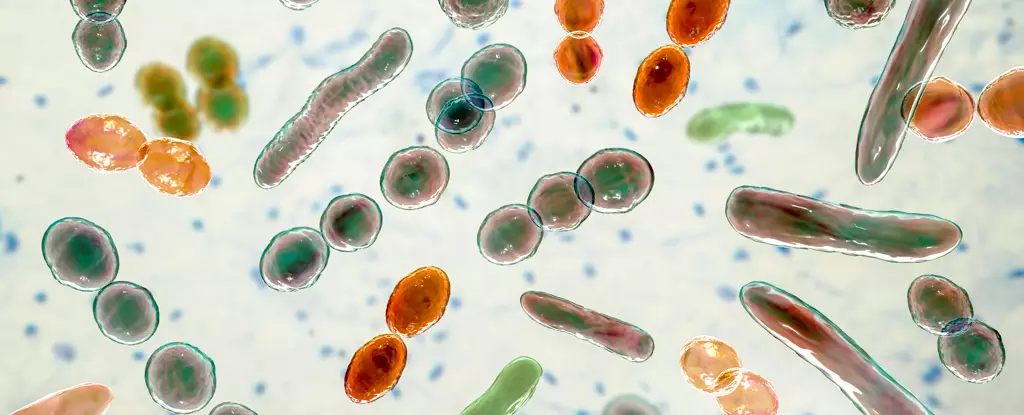

Weight loss and diabetes drugs like Wegovy, Ozempic, and Mounjaro have garnered significant attention in the field of health. These drugs have been lauded as breakthroughs for weight loss and blood sugar control, targeting regulatory pathways involved in obesity and diabetes. However, it is essential to explore the origins of these drugs and the underlying cause of metabolic disease.
Interestingly, these drugs mimic the natural incretin hormones produced by the body, specifically in the gut. These gut hormones, such as GLP-1 and PYY, play a crucial role in regulating appetite, metabolism, and blood sugar levels. The production and regulation of these hormones are influenced by the trillions of microbes present in the gut, highlighting the vital role of the gut microbiome in overall health and disease.
Specialized bacteria in the lower gut help break down indigestible components of food, such as fiber and polyphenols. These components, which are often removed in highly processed foods, are transformed by gut microbes into molecules that stimulate hormones like GLP-1, similar to the effects of Wegovy and Ozempic. These hormones not only regulate blood sugar but also communicate satiety to the brain and slow down the movement of food in the digestive tract.
Unfortunately, the modern food processing techniques used to improve taste and shelf stability often strip away the essential bioactive molecules found in fiber and polyphenols. This loss of key food components, coupled with a decrease in gut microbiome diversity, has been implicated in the rise of obesity and diabetes. The development of drugs like Wegovy and Ozempic aimed to restore the function of the gut hormones and reinvigorate the colonic brake system to counteract these adverse effects.
Mounjaro, a weight loss and diabetes drug, has taken a step further by combining GLP-1 with another hormone analogue called GIP. Clinical studies have shown that this combination therapy is more effective in promoting weight loss than GLP-1-only therapies. Furthermore, these drugs complement extreme measures like gastric bypass surgery, which also leverage the effects of gut hormones and the gut microbiome to regulate appetite and metabolism.
In addition to managing metabolic conditions like obesity, diabetes, and cardiovascular disease, incretin-based medications like Wegovy, Ozempic, and Mounjaro are being evaluated for their potential in treating nonmetabolic conditions. Medical researchers are exploring their effectiveness in addressing alcohol abuse, drug addiction, and depression due to their impact on the brain and cravings.
While these drugs show promising results, certain concerns have been raised regarding their usage. The gastrointestinal side effects, including nausea, vomiting, diarrhea, and constipation, are attributed to the drugs’ impact on slowing down the digestive tract. Although severe side effects like pancreatitis and irreversible gastroparesis are rare, they exist. Additionally, there is a risk of losing healthy lean muscle mass, especially without exercise, when using these drugs. Long-term effects and transitioning back to non-pharmacological weight management methods also raise questions.
Despite the potential of these medications, it is vital to recognize that a healthy lifestyle remains the cornerstone of managing metabolic disease and overall health. Regular exercise, stress management, quality sleep, outdoor activities, and a balanced diet are essential components. Reintroducing whole foods, particularly those rich in fiber and polyphenols, can help reactivate the gut’s built-in appetite and metabolism control, thereby promoting healthy metabolism and combating obesity and metabolic disease at its roots.
In the world of pharmaceuticals, innovation often hinges on finding new compounds that can lead…
In the heart of the Amazon basin, drastic climate changes present an alarming reality that…
Air fryers have rapidly surged in popularity, captivating home cooks and culinary enthusiasts alike. When…
In an era where technology and social media reign, the importance of sleep often takes…
In an era where environmental consciousness is paramount, the maritime industry has long been scrutinized…
Radionuclides, often relegated to discussions surrounding nuclear energy and radioactive waste, have far-ranging implications for…
This website uses cookies.